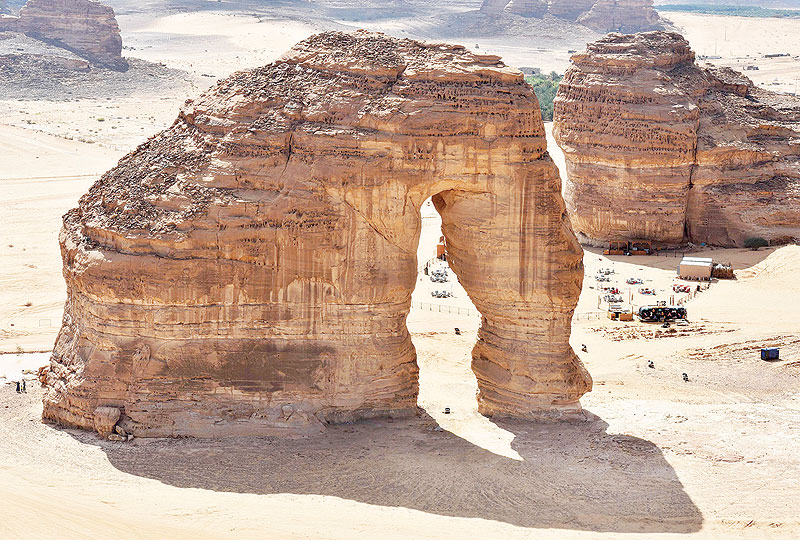New tourism industry faces huge training challenge
RIYADH: Saudi Arabia has opened its doors to tourists, but faces huge challenges to train an estimated one million staff needed to operate the sector, according to the head of one forthcoming mega-project. The ultra-conservative kingdom announced in September that it would offer tourist visas for the first time, relaxing rules that had largely restricted visits to business travelers and Muslim pilgrims.
But despite a slick global advertising campaign, Saudi tourism infrastructure is still scant - in contrast to its ambitions to welcome 100 million visitors by 2030. The Red Sea Project, to be built across an archipelago of 90 islands and stretching into nearby deserts and mountains, will open for business in 2022, its CEO John Pagano said at a major investment forum in Riyadh.
"The challenges are going to be related to investing in our people, training the workforce that we need for the future," he told AFP on the conference sidelines. "A million people will be working in the tourism sector, so we need a country-scale initiative to train tourism professionals." The first phase of the mega-project off the Saudi port city of Jeddah envisages 14 luxury hotels built on five islands, with resorts in the mountains beyond.
Unlike other destinations around the Red Sea, led by Egypt and Israel, Saudi Arabia is opting for a luxury tourism model along the lines of the successful industries in Oman and the United Arab Emirates. "We are going to limit the number of visitors because over-tourism is a major cause of environmental damage," Pagano said. But he added that the Red Sea project alone promises to deliver 70,000 jobs and $5.9 billion towards Saudi GDP annually.
"In Saudi Arabia, tourism makes up just 3.4 percent of GDP so there is a huge opportunity to grow in an industry that currently doesn't exist," he said. Developing tourism is one of the major planks of Crown Prince Mohammed bin Salman's drive to wean the economy off its decades-long dependence on oil revenues. The Crown Prince has sought to shake off his country's ultra-conservative image, lifting a ban on cinemas and women drivers as well as allowing concerts and sporting extravaganzas.
But Saudi Arabia, which forbids alcohol and enforces strict rules on gender segregation, may not be the easiest sell for global tourists. To encourage visitors, authorities announced they would allow unmarried foreign couples to rent hotel rooms together, and that foreign women were not obliged to wear the body-shrouding abaya that is still expected in public for Saudi women.
"The best way to face the challenges is to open the country up, show what's happening," Pagano said. "This country is going through a major transformation, every day you see new things happening that people said would never happen." "By the process of tourism we are going to change the perception of the wider public, by people coming, physically experiencing what Saudi Arabia has to offer."- AFP











